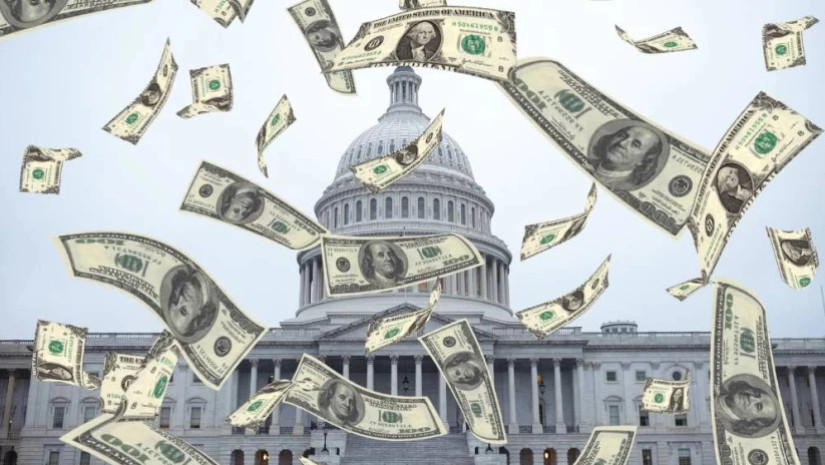The U.S. budget deficit in July climbed 20% this fiscal year compared to the last despite the U.S. taking in record income from President Donald Trump’s tariffs, according to Treasury Department data released Tuesday.
The U.S. saw a 273% increase — or $21 billion — in customs revenue in July over the same period last year, the data showed.
A Treasury official who spoke on the condition of anonymity to preview the data said overall increased spending is in part due to a mix of expenditures, including growing interest payments on the public debt and cost-of-living increases to Social Security payouts, among other costs. This comes as the federal government’s gross national debt creeps up to the $37 trillion mark.
Even as Trump talks about America becoming rich because of his import tax hikes, federal spending keeps outpacing the revenues collected by the government. That financial picture might change as companies exhaust their pre-tariff inventories, forcing them to import more goods and generate even more in tax revenues that could whittle away at the deficit without meaningfully reducing it as promised.
If tariffs fail to deliver on Trump's pledge to improve the government's balance sheet, the American public could be faced with fewer job options, more inflationary pressures and higher interest rates on mortgages, auto loans and credit cards. The budget deficit is the annual gap between what the U.S. government raises in taxes and what it spends, over time feeding into the overall national debt.


















